Product Description
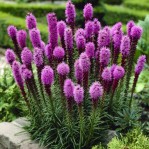
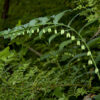
Podophyllum peltatum – Mayapple
Native/Non-native – Native
Hardiness Zone – 3-8
Sun – Partial shade to full shade
Moisture – Average to moist
Size – 1-2′ tall x .5-1′ spread
Comments
* Showy white flowers
* Colonizes rich moist soil
Description
Common Name: may-apple
Culture
Grow in average, medium moisture, well-drained soil in part shade to full shade. Prefers rich, moist, humusy, acidic soils. May form large colonies in the wild. Will self-seed under optimum growing conditions. As with many of the early spring wildflowers, mayapple goes dormant in summer.
Noteworthy Characteristics
This Missouri native mayapple differs from the native species, Podophyllum peltatum, by the presence of the color purple in many of the plant parts: light purplish-pink flowers, wine-purple ovaries, maroon-purple fruit and purple-flecked stem and leaf stalks. Forma deamii is rare throughout its limited range of Pennsylvania to Missouri, and appears to be limited in Missouri to certain populations in Coles county (Steyermark). It is a rhizomatous perennial which occurs in both moist and dry woodland areas. From a single stem, each plant grows 12-18″ tall and features one or two, deeply-divided, palmately-lobed, umbrella-like, pale green leaves (to 12″ diameter). Plants with only one leaf will not flower. From the crotch (leaf axil) on two-leaved plants, a single, nodding, waxy, 6-8 petaled, light purplish pink flower (3″ diameter) appears on a short, thin stem in early spring. Flowers are quite showy, but are usually hidden by the umbrella-like leaves. Each flower gives way to an edible, fleshy, maroon purple fruit (mayapple) which may be used to make preserves and jellies. Leaves and roots are poisonous, however.
Problems
No serious insect or disease problems.
Garden Uses
This rare form is perhaps best grown in a prominent location in a woodland setting, wild or native plant garden or naturalized area. Because plants naturalize easily to form colonies but go dormant in summer (foliage disappears), mayapple is not considered a good border plant. May be difficult to obtain in commerce.


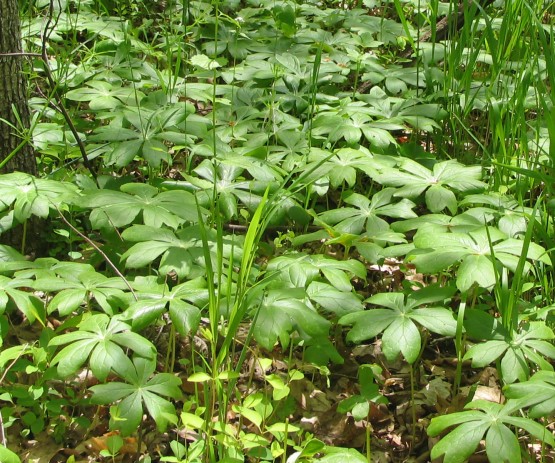
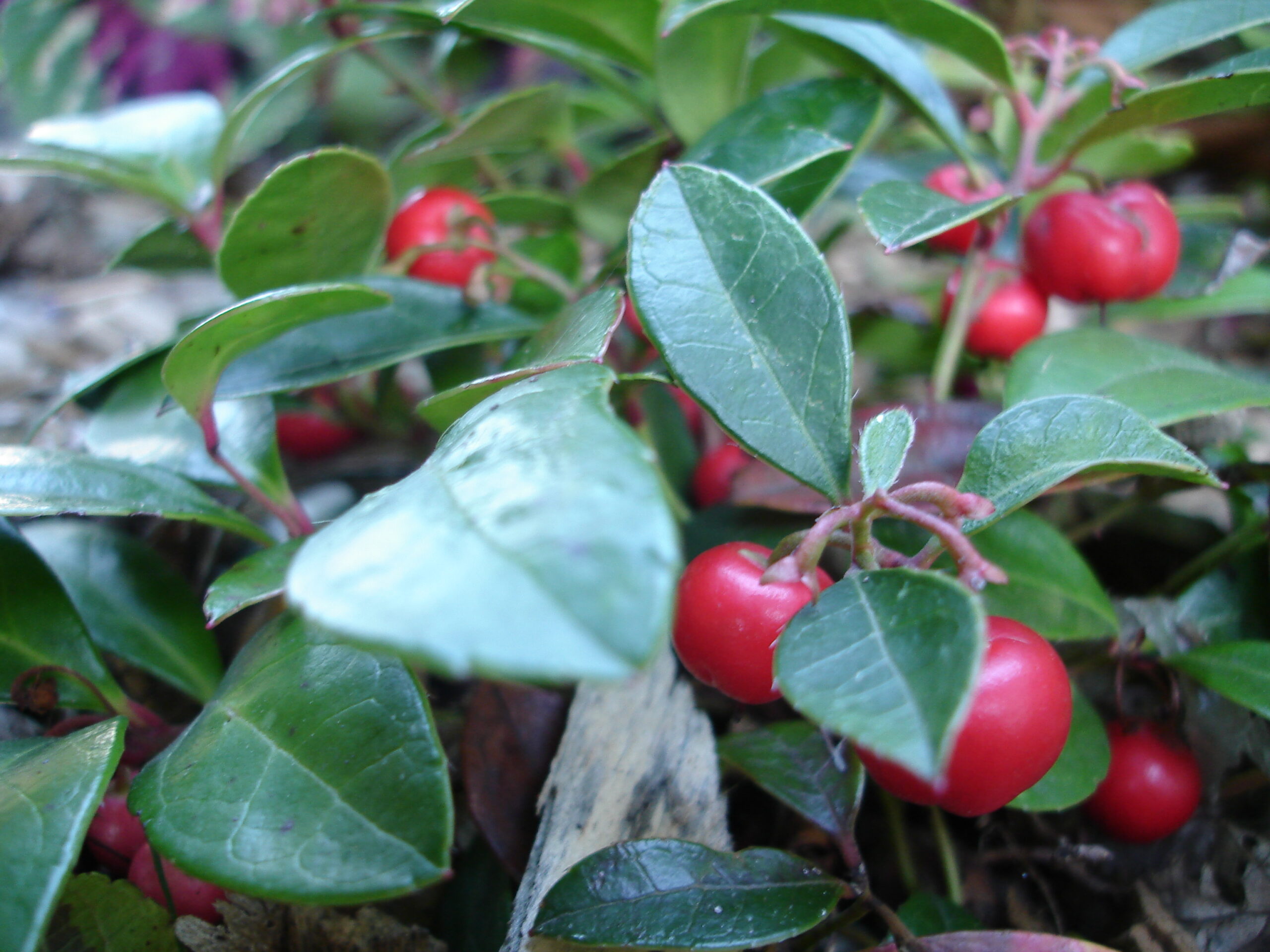
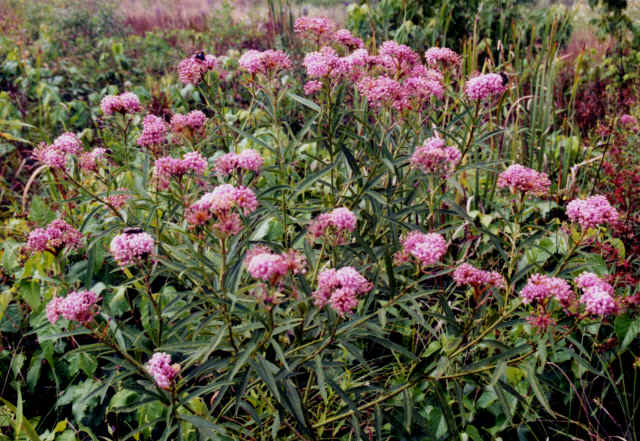
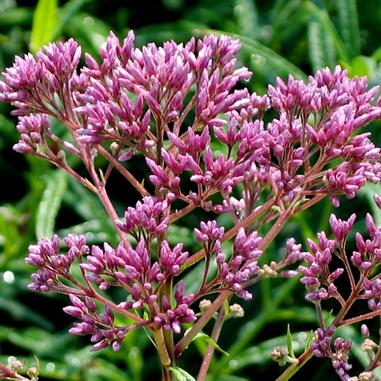
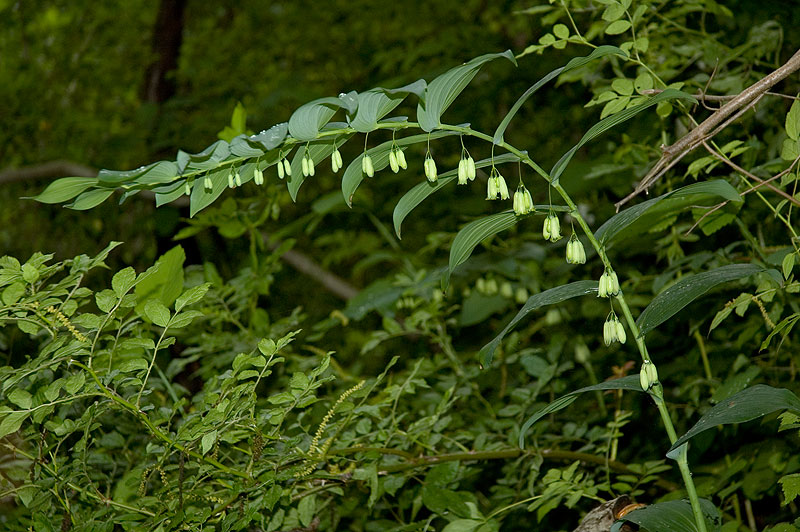
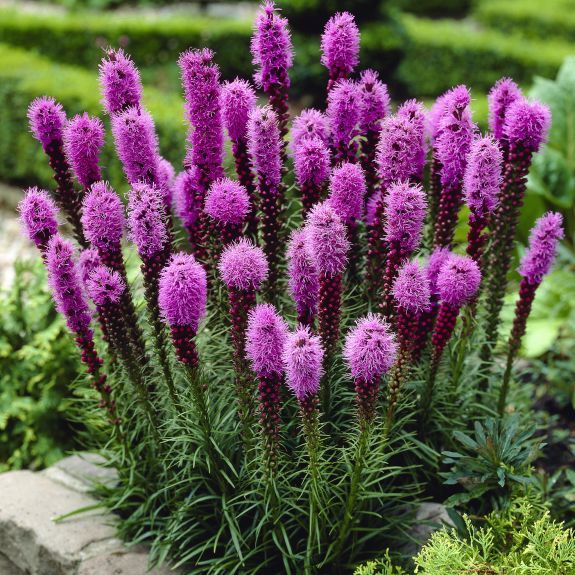
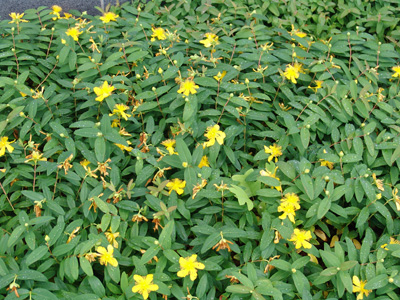
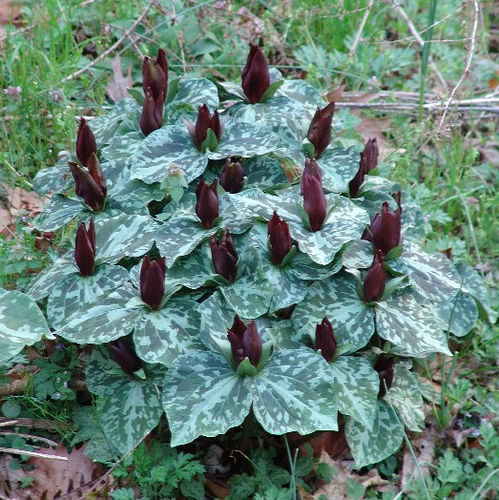
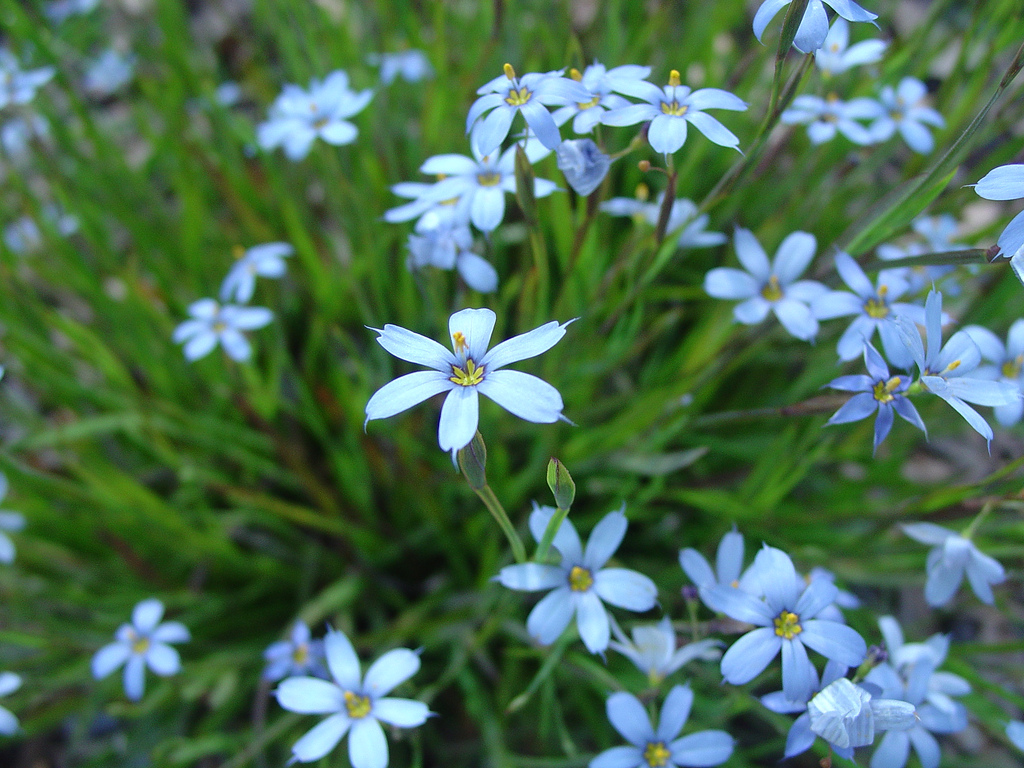
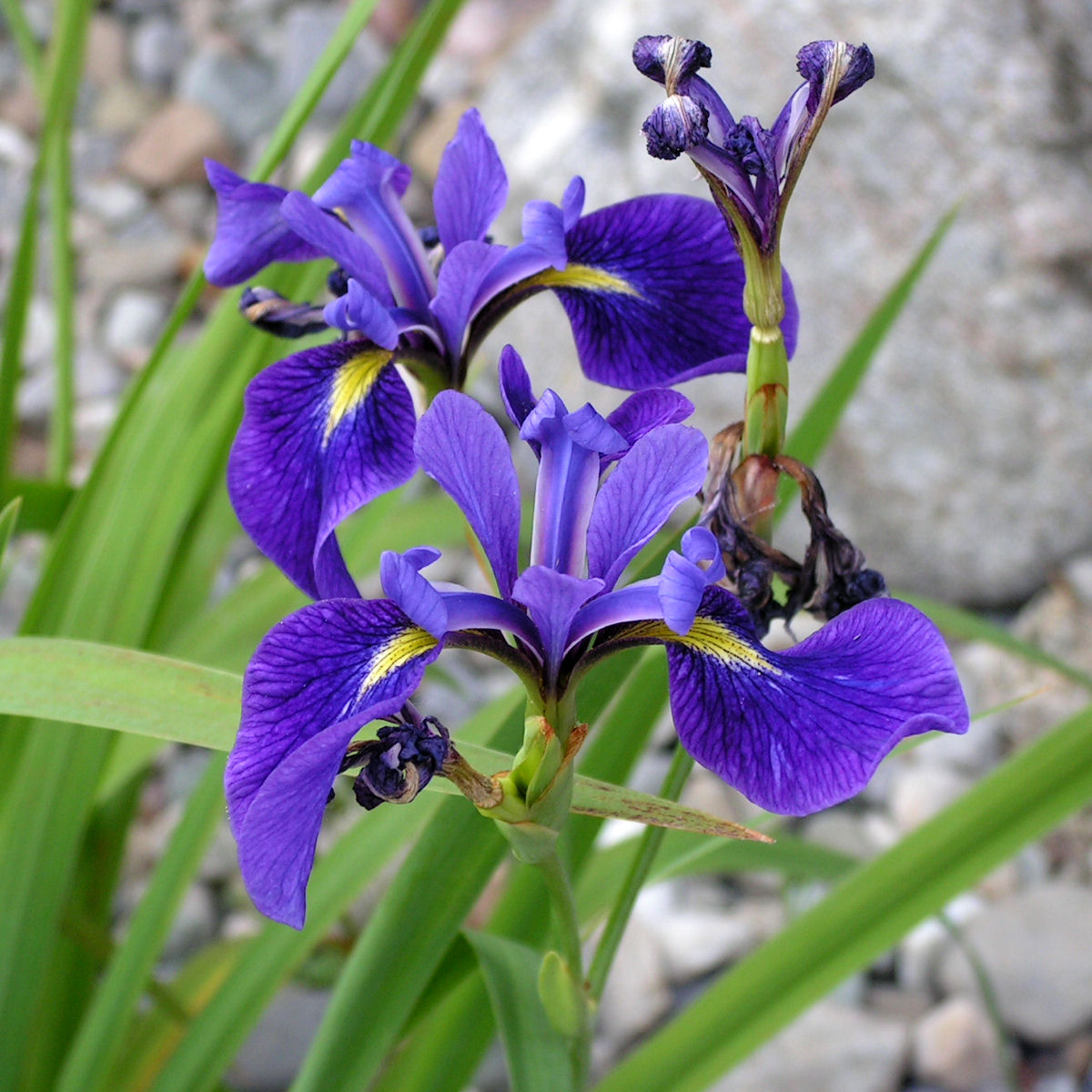
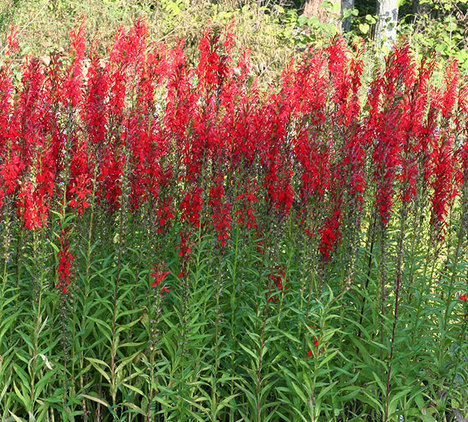
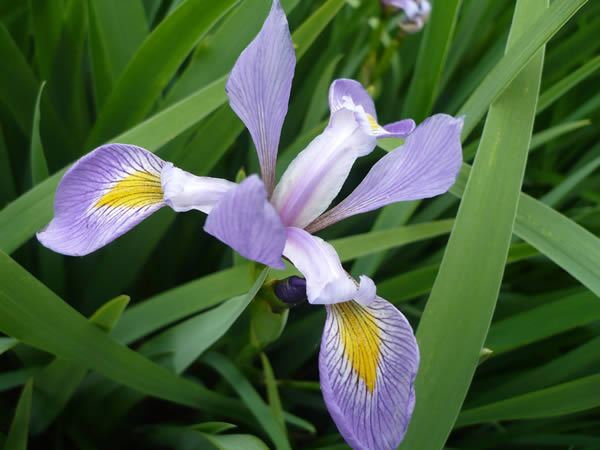
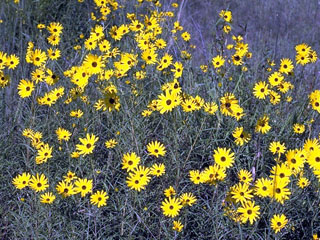
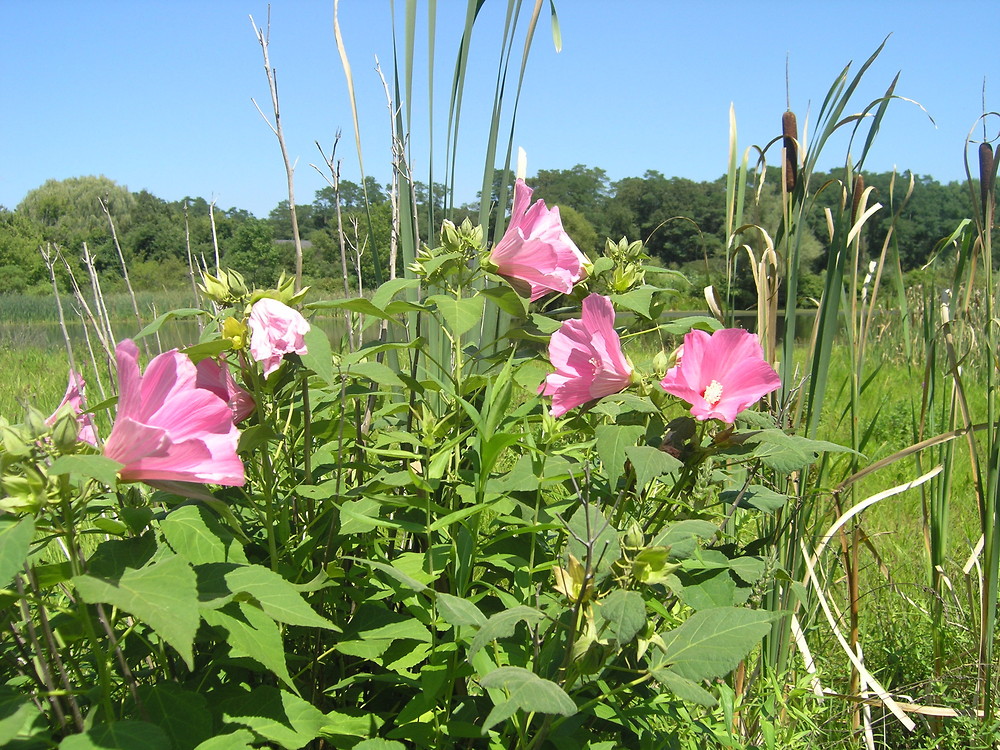
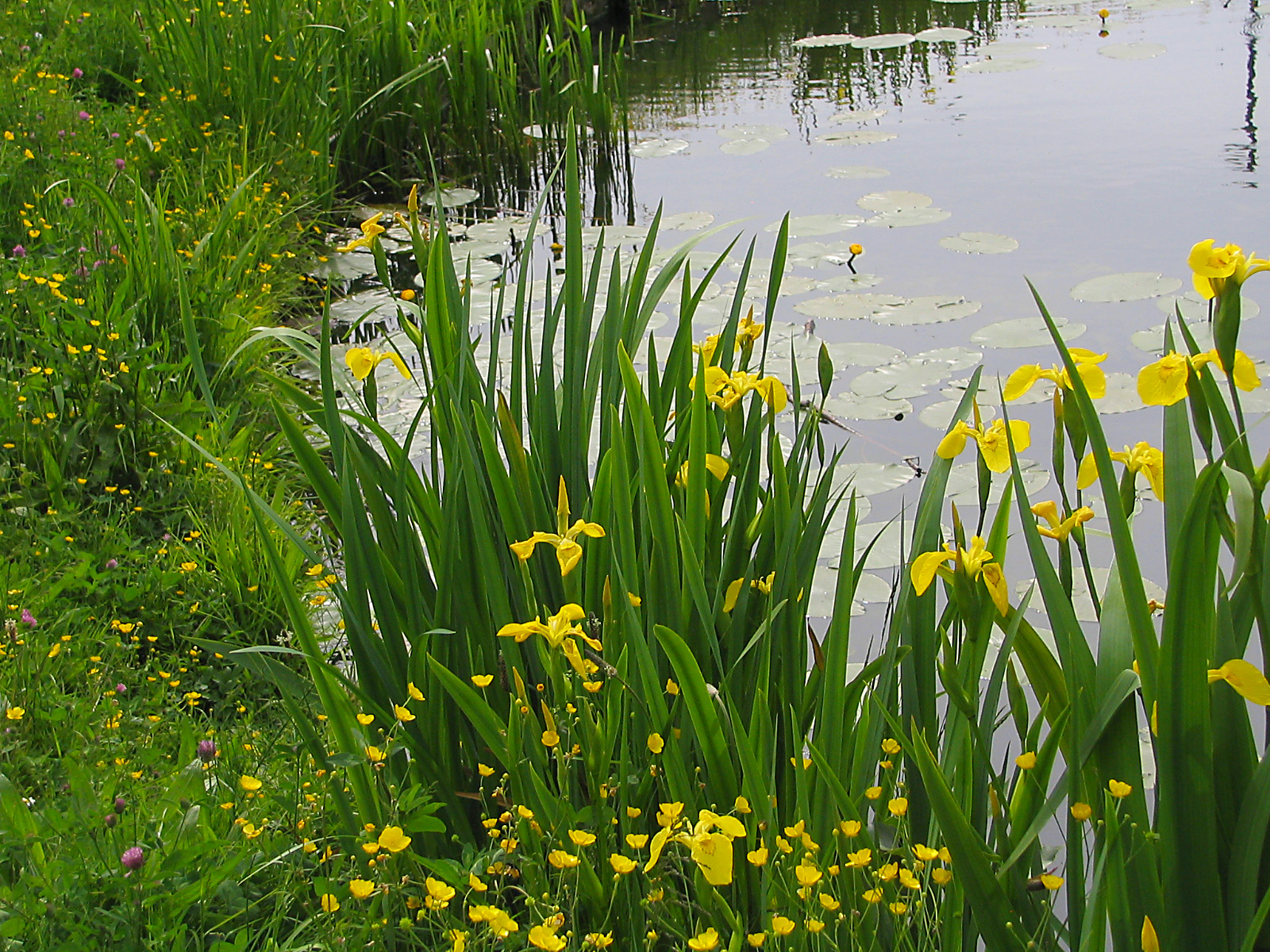
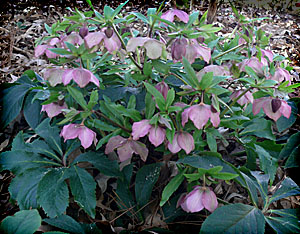
Reviews
There are no reviews yet.